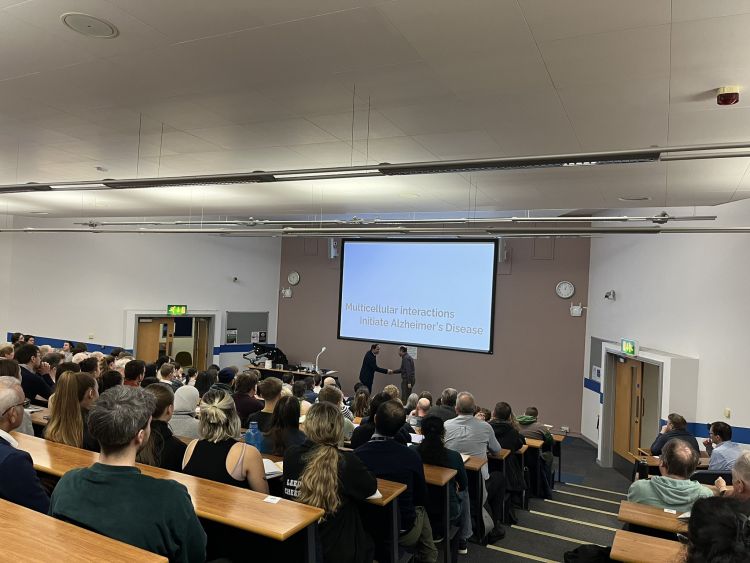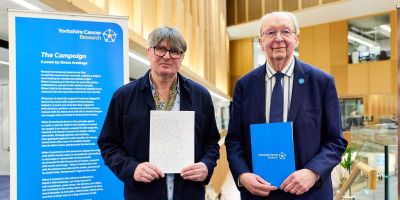Professor Bart De Strooper wows at guest seminar

Renowned neuroscientist Professor Bart De Strooper joined colleagues across the University for a guest seminar about his ground-breaking research into Alzheimer’s disease.
The seminar, which was opened by Interim Vice-Chancellor and President Professor Hai-Sui Yu, took place at University of Leeds on Monday 22 January, in front of a packed room of staff, students and members across the university community.
In his talk, Professor De Strooper (UK DRI, UCL and Leuven University) discussed his recent work that demonstrates the difference between human and murine cell types in reacting to amyloid plaque stress and how this influences Tau pathology and neuronal cell loss in xenograft models of Alzheimer’s disease.
His work focuses on interrogating the fundamental mechanisms underlying neurogenerative diseases, such as Alzheimer’s and Parkinson’s disease, and translating genetic findings to discover new drug targets and treatments.
Professor Sheena Radford, Astbury Professor of Biophysics, School of Molecular and Cellular Biology, who chaired the event said:
“It was an absolute pleasure to be joined by such a trailblazer in neurodegenerative disease research.
Professor De Strooper and his team of researchers have made great strides in understanding the underlying mechanisms of Alzheimer’s. At the early stage of his career, little was known about the biological processes that underlay this disease.
When Prof De Strooper started his career, Alzheimer’s research focused on the genetic mutation on chromosome 21 for amyloid precursor protein.
Building on breakthroughs from the 1980s, a group of researchers including Professor De Strooper, discovered that a second type of protein located on chromosome 14, known as presenilin (‘little scissors’ that are supposed to cut the amyloid precursor protein), plays a crucial role in the development of Alzheimer's disease.
He has since furthered his work into the proteolytic processing of the amyloid precursor protein, the functional studies of presenilin and the identification of gamma-secretase (enzymes).
More recently, he has developed exciting disease models that integrate human cells into mice to study the cellular phase of amyloid development. The study will facilitate the identification of a potential new drug target.
He was elected to the Academy of Medical Sciences in 2020, and has received several awards including the Potamkin prize, the Metlife Foundation Award for Medical Research, Alois Alzheimer’s prize, Commander in the Order of Leopold I and the highly prestigious Brain Prize 2018 which was shared with John Hardy, Christian Haass and Michel Goedert.
Professor De Strooper’s research epitomises world-leading science but most importantly, it’s shaping ongoing global efforts in finding new treatments, offering us greater hope for a cure.
Interim Vice-Chancellor and President Professor Hai-Sui Yu welcomes Professor Bart De Strooper, in the seminar co-organised by colleagues in the Faculty of Biological Sciences, Prof Sheena Radford, Dr René Frank and Dr Jessica Kwok.
Dr René Frank, Associate Professor in the School of Biomedical Sciences, and co-organiser of the event, added:
His visit has not only inspired the next generation of medical and biological sciences students but it’s also fostered new collaborations with ongoing Alzheimer’s disease researchers here at Leeds.





